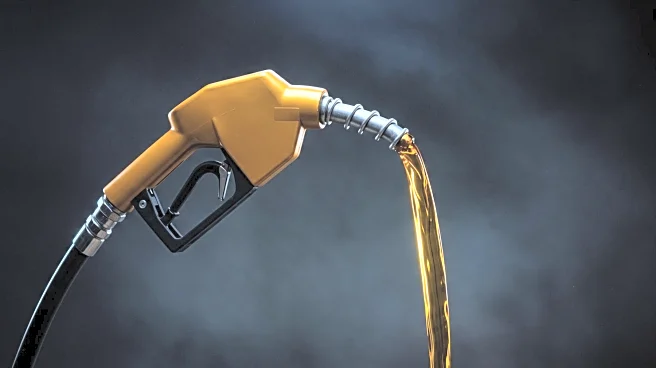What's Happening?
Diesel prices in Africa have risen significantly, with the Central African Republic leading at $2.30 per liter. The increase is linked to subsidy cuts and global market fluctuations, affecting transportation and food supply chains. Protests in Angola over price hikes have resulted in deaths and arrests, highlighting the social impact of fuel costs. West Africa's reliance on diesel imports from Russia and India exposes the region to price volatility, contributing to inflation and economic strain.
Why It's Important?
High diesel prices have widespread implications for African economies, affecting transportation costs, inflation, and social stability. The reliance on imports makes countries vulnerable to global market changes, impacting consumer purchasing power. Governments face challenges in balancing budgetary sustainability with public tolerance, as subsidy cuts can lead to unrest. The situation underscores the need for investment in refining capacity and alternative energy sources to reduce dependency on diesel.
What's Next?
Governments may need to explore alternative energy investments and improve distribution networks to mitigate diesel dependency. Policy adjustments could be necessary to address public discontent and stabilize economies. International cooperation might be sought to manage import dependencies and price volatility. The situation could prompt discussions on energy diversification and sustainable development strategies.
Beyond the Headlines
The diesel price surge highlights the interconnectedness of energy policy and social stability. It raises questions about the long-term sustainability of current energy practices and the need for innovation in energy solutions. The impact on family budgets and social unrest could drive policy changes and investment in renewable energy.









